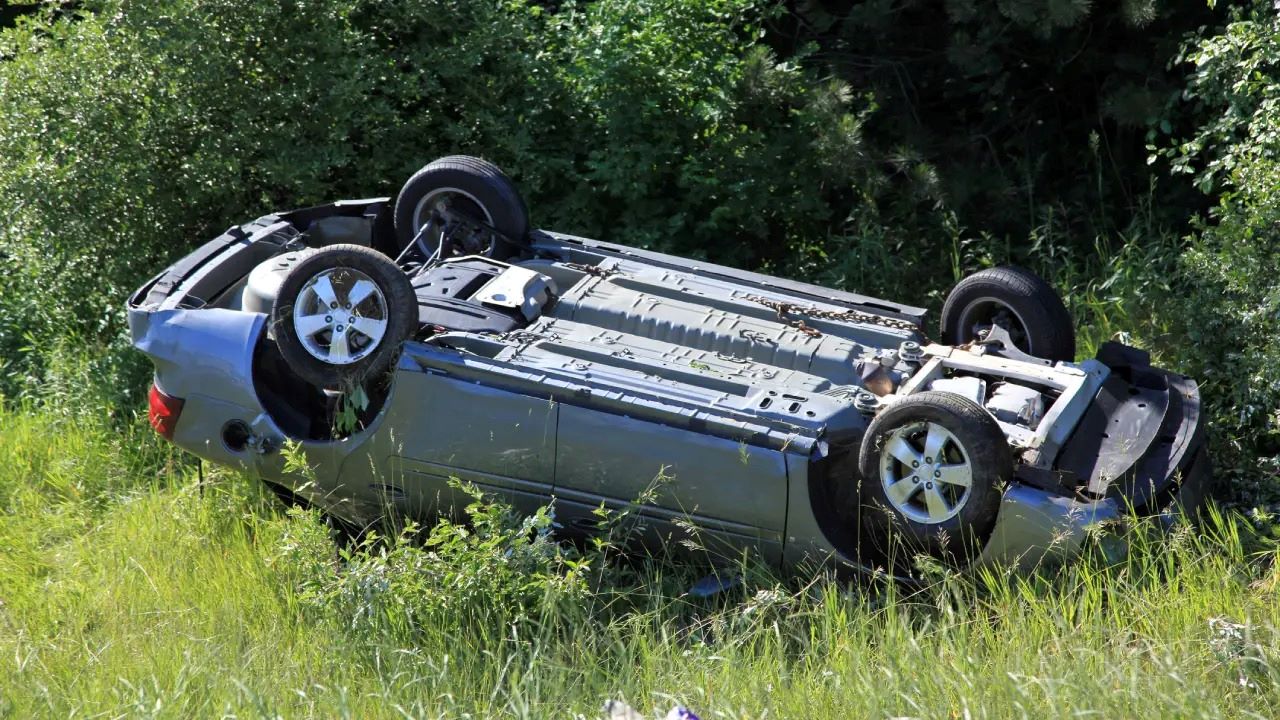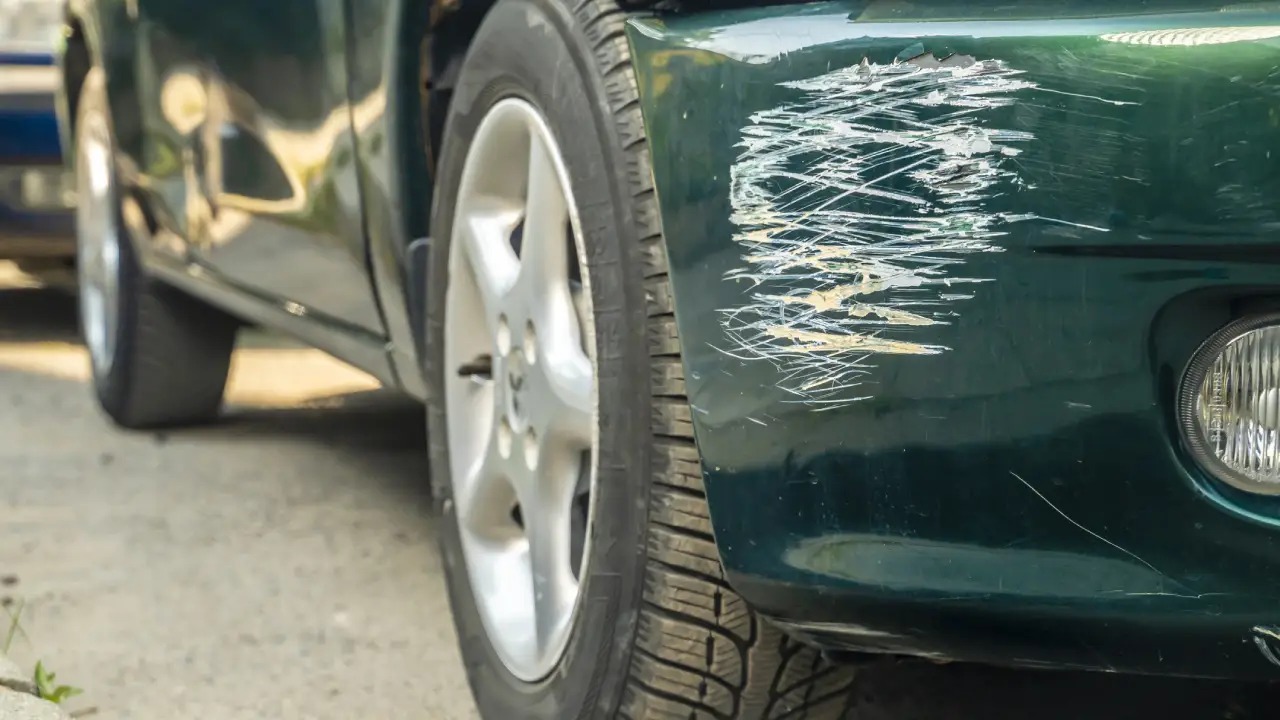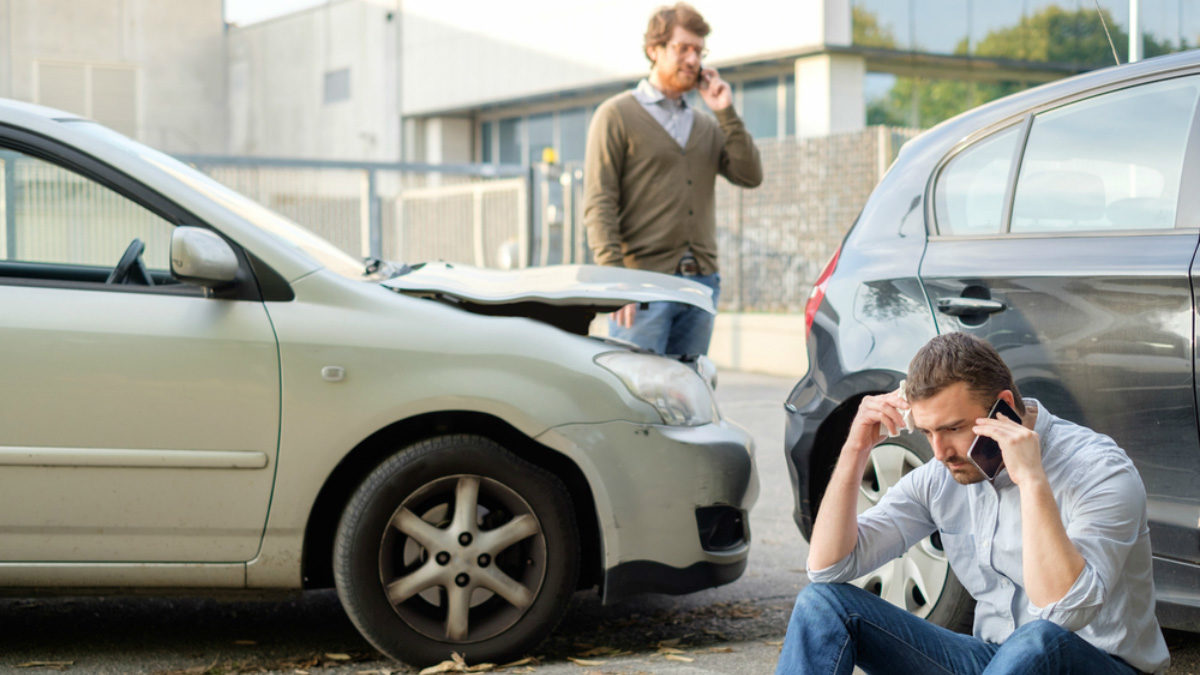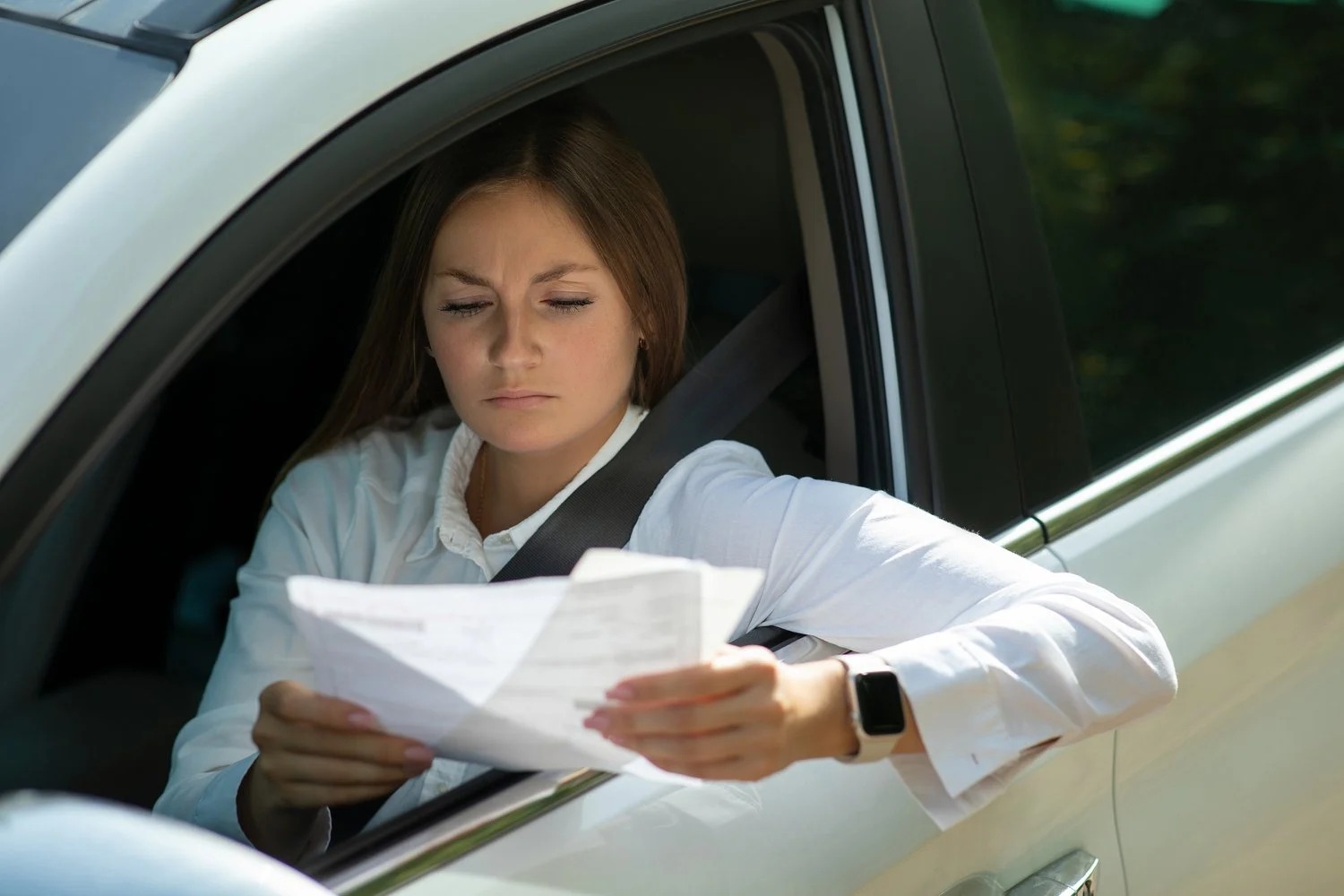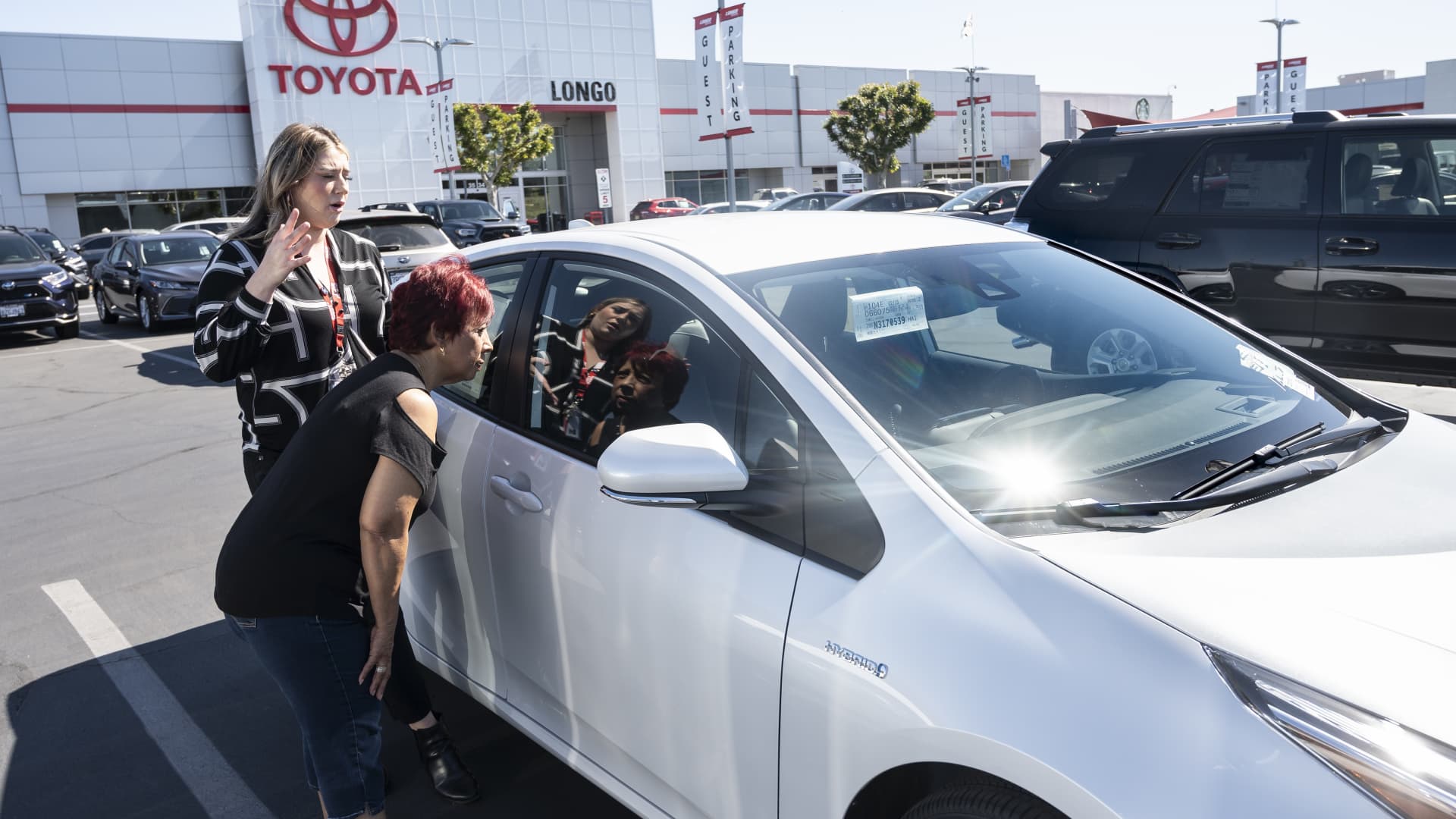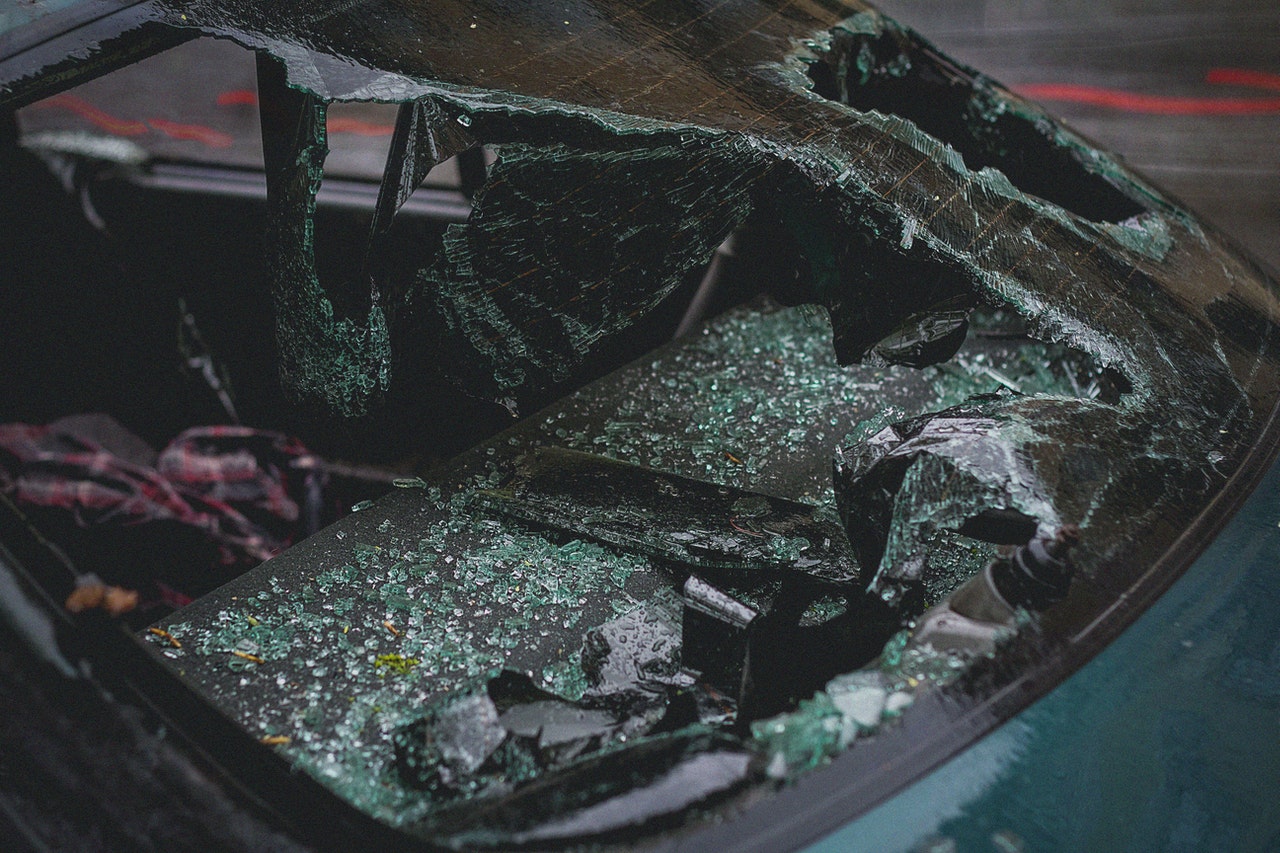Home>Finance>What Happens If You Damage A Rental Car With Insurance?


Finance
What Happens If You Damage A Rental Car With Insurance?
Published: November 15, 2023
Explore what happens if you damage a rental car with insurance in the finance sector. Understand the financial implications and coverage provided by insurance policies.
(Many of the links in this article redirect to a specific reviewed product. Your purchase of these products through affiliate links helps to generate commission for LiveWell, at no extra cost. Learn more)
Table of Contents
Introduction
When you rent a car, accidents are always an unfortunate possibility. Even the most careful drivers can find themselves in a situation where the rental car gets damaged. This can be a stressful experience, but knowing that you have rental car insurance can provide some peace of mind.
Rental car insurance is a type of coverage that helps protect you financially if the rental car gets damaged or stolen. It serves as a safety net, preventing you from having to pay for expensive repairs out of your own pocket. However, it’s important to understand the specifics of your rental car insurance policy to know what is covered and what is not.
There are various types of rental car insurance available, ranging from the basic coverage provided by the rental car company to additional coverage you can purchase through your own car insurance or credit card. Each type of insurance has its own terms and conditions, so it’s essential to review your policy and understand the details.
If you do end up damaging a rental car despite having insurance, the process of reporting the damage and paying for repairs may vary depending on your policy. In most cases, you will need to inform the rental car company about the damage and follow their instructions for reporting and resolving the issue.
The cost of repairs for a damaged rental car can be significant, but with rental car insurance, your out-of-pocket expenses will likely be reduced. The insurance policy will typically cover the repairs up to a certain limit, and you may be responsible for paying a deductible amount. It’s important to review your policy to understand the deductible amount and any other factors that may affect your financial responsibility.
It’s worth noting that making a claim for rental car damage can have an impact on your future insurance premiums. Some insurance companies may view a rental car claim as an indicator of higher risk, potentially leading to an increase in your premiums. However, this can vary depending on your insurance provider and individual circumstances.
In this article, we will discuss the different types of rental car insurance, the steps involved in reporting and paying for repairs, and the potential impact on your insurance premiums. By understanding these aspects, you will be better prepared to navigate the process and make informed decisions when renting a car.
Understanding Rental Car Insurance
Rental car insurance is a type of coverage that protects you financially in the event of damage, theft, or other incidents involving a rental car. It serves as a safeguard against unexpected costs and liabilities that may arise when you temporarily rent a vehicle.
When you rent a car, the rental car company typically offers some form of basic coverage as part of the rental agreement. This coverage usually includes liability insurance, which covers damages to other vehicles or property in the event of an accident. However, it’s important to note that this basic coverage may have limitations and exclusions, so it’s essential to review the terms and conditions carefully.
In addition to the coverage provided by the rental car company, there are other options available to enhance your rental car insurance. One common option is purchasing a collision damage waiver (CDW) or loss damage waiver (LDW). This waiver relieves you of financial responsibility if the rental car is damaged or stolen. It typically covers the cost of repairs or the market value of the vehicle if it is a total loss.
Another option to consider is supplemental liability insurance (SLI). This type of coverage provides additional liability protection beyond the basic coverage offered by the rental car company. It can be beneficial if you want to increase your coverage limits or if you’re traveling to an area with higher liability requirements.
It’s important to note that you may already have rental car insurance through your personal auto insurance policy or credit card benefits. Many auto insurance policies extend coverage to rental cars, but the specifics may vary depending on your insurance provider and policy. Similarly, some credit cards offer rental car insurance as a benefit, often providing coverage for damage or theft when the rental is paid with the card.
Before renting a car, it’s crucial to review your existing insurance policies and credit card benefits to understand if any coverage is already provided. This can help you avoid unnecessary additional costs and duplication of coverage. If your existing coverage is sufficient, you may choose to decline the rental car company’s insurance options.
Understanding the different types of rental car insurance and how they work can help you make an informed decision when renting a car. By taking the time to review your options and assess your existing coverage, you can ensure you have the appropriate level of protection and avoid potential financial pitfalls in the event of a rental car accident.
Types of Rental Car Insurance
When it comes to rental car insurance, there are several types of coverage options available. Understanding these options can help you choose the right insurance plan that provides the level of protection you need. Here are the main types of rental car insurance:
- Liability Insurance: Liability insurance is the most basic form of coverage provided by the rental car company. It covers damages to other vehicles or property in the event of an accident where you are at fault. This insurance is typically required by law and is included in the rental price.
- Collision Damage Waiver (CDW) or Loss Damage Waiver (LDW): A collision damage waiver, also known as a loss damage waiver, is an optional insurance offered by the rental car company. It relieves you of financial responsibility if the rental car is damaged or stolen. It often covers the cost of repairs or the market value of the vehicle if it is a total loss.
- Supplemental Liability Insurance (SLI): Supplemental liability insurance provides additional liability protection beyond the basic coverage offered by the rental car company. It increases your coverage limits and can be valuable if you want extra peace of mind or if you’re traveling to an area with higher liability requirements.
- Personal Accident Insurance (PAI): Personal accident insurance provides coverage for medical expenses and accidental death or disability resulting from a rental car accident. This coverage is optional and is often already provided through your personal health or life insurance policies.
- Personal Effects Coverage (PEC): Personal effects coverage provides coverage for personal belongings that are stolen from the rental car. It is an optional coverage that can protect your belongings in case of theft or damage during the rental period.
It’s important to review the terms and conditions of each insurance option to understand what is covered, the policy limits, and any exclusions or deductibles. Depending on your personal insurance coverage and credit card benefits, you may already have some of these coverages, so it’s essential to cross-check to avoid duplicating coverage and unnecessary costs.
When deciding which rental car insurance options to choose, consider factors such as your existing insurance coverage, the specific terms of the rental car insurance policies, the value of the rental car, and your comfort level with assuming potential financial liabilities. It’s wise to have a thorough understanding of your insurance needs and consult with your insurance provider if necessary.
By understanding the different types of rental car insurance available, you can make an informed decision and select the insurance coverage that best suits your needs. Remember to carefully review the terms and conditions of each policy and consider consulting with your insurance provider to ensure you have the appropriate level of coverage for your rental car experience.
Damage to a Rental Car with Insurance
Even with rental car insurance, accidents can happen, and the rental car may get damaged. If you find yourself in this situation, having insurance can provide some relief, but there are still important steps to take to ensure a smooth process.
The first step is to assess the damage to the rental car. Take photos or videos of the damage and document any relevant details. This evidence will be helpful when reporting the damage to the rental car company and the insurance provider.
Next, you need to inform the rental car company about the damage as soon as possible. Follow the guidelines provided by the company to report the incident. They will instruct you on how to proceed with the necessary paperwork and claim process.
The rental car company will likely ask for information such as the date and time of the incident, a description of what happened, and any documentation you have regarding the damage. Provide all the requested information accurately and promptly to facilitate the claims process.
Depending on your insurance coverage, either through the rental car company or your personal policy, you may need to pay a deductible to cover the cost of the repairs. The deductible is the amount you are responsible for before the insurance coverage kicks in. Review your policy to understand the deductible amount and any other financial obligations.
After reporting the damage, the rental car company may decide to handle the repairs themselves or send the car to an approved repair shop. Follow their instructions regarding repairs and any necessary paperwork or documentation.
If the rental car is deemed to be in a condition where it cannot be driven, the rental car company may provide a replacement vehicle for the remainder of your rental period. This will depend on their policies and the availability of another car.
Remember that any damage to the rental car should be reported, regardless of the severity. It’s important to be transparent and cooperative throughout the process to ensure a smooth resolution.
Keep in mind that making a claim for rental car damage may have an impact on your future insurance premiums. Some insurance companies consider rental car claims as an indicator of increased risk, potentially leading to higher premiums. However, this can vary depending on the insurance provider, so it’s important to inquire about the potential impact on your rates.
By following the proper procedures and promptly reporting any damage, you can navigate the process of dealing with a damaged rental car more efficiently. Rental car insurance provides the necessary coverage, but it’s essential to understand your policy, follow the guidelines of the rental car company, and maintain open communication with the insurance provider to ensure a satisfactory resolution.
Reporting the Damage to the Rental Car Company
When you damage a rental car, one of the crucial steps you need to take is reporting the damage to the rental car company promptly. Timely reporting ensures that the company is aware of the situation and allows them to initiate the necessary processes to resolve the issue. Here’s a step-by-step guide on how to report the damage to the rental car company:
- Assess the damage: Before reaching out to the rental car company, thoroughly assess the damage to the rental car. Take detailed photographs and videos of the damage from various angles. This documentation will serve as evidence and help in the claims process.
- Contact the rental car company: Call the rental car company’s customer support line as soon as possible to report the damage. Provide them with accurate information about the incident, including the date, time, and location where the damage occurred.
- Follow the company’s instructions: The rental car company will guide you through the next steps, which may involve filling out a damage report form. Follow their instructions carefully and provide them with any supporting documentation they require. This may include photos of the damage, a written description of the incident, and any other relevant information.
- Provide insurance details: If you have rental car insurance through the rental car company or your personal policy, provide the company with the necessary insurance details. This includes the name of the insurance provider, the policy number, and any other relevant information they may require.
- Cooperate with the investigation: The rental car company may conduct an investigation into the incident to determine the extent of the damage and assess liability. Cooperate fully with their investigation, providing them with any information they request and answering any questions truthfully and accurately.
- Request a copy of the damage report: Once you have reported the damage and completed the necessary paperwork, request a copy of the damage report for your records. This will serve as proof that you reported the damage and can be used for any future reference or insurance claims.
- Follow up: If there are any delays or issues in resolving the damage claim, follow up with the rental car company. Maintain open communication with them to ensure that the claim is being processed and resolved efficiently.
Reporting the damage promptly and accurately is essential to ensure a smooth claims process and avoid any misunderstandings. By following these steps and cooperating with the rental car company, you can take the necessary actions to resolve the damage to the rental car in a timely and effective manner.
Paying for Repairs
When a rental car gets damaged, the responsibility for paying for the repairs will depend on the terms of your rental car insurance policy. Here’s what you need to know about paying for repairs:
Insurance Coverage: If you have purchased a collision damage waiver (CDW) or loss damage waiver (LDW) through the rental car company, or if your personal auto insurance policy covers rental cars, the insurance should cover the cost of repairs up to the policy’s limits. However, you may still be responsible for paying a deductible.
Deductible: A deductible is the amount you are responsible for paying out of pocket before the insurance coverage kicks in. The deductible amount will be outlined in your insurance policy. If the cost of repairs is lower than the deductible, you will be responsible for covering the full amount.
Payment Authorization: In most cases, the rental car company will require your authorization to initiate repairs and pay for them. They may ask for a form of payment such as a credit card or a hold on your card for the repair amount. If the cost of repairs exceeds your policy’s coverage limit, you may be responsible for paying the remaining balance.
Approved Repair Shops: The rental car company may have a list of approved repair shops that you need to use for repairs. If so, you will need to take the damaged rental car to one of these authorized shops to ensure the repairs are covered by your insurance policy. The rental car company will provide you with the necessary information and instructions.
Out-of-Pocket Payment: If you decline the rental car company’s insurance coverage and rely solely on your personal auto insurance or credit card benefits, you may have to pay for the repairs out of pocket initially. You will then need to file a claim with your insurance provider or credit card company for reimbursement. It’s important to keep all receipts and documentation related to the repairs for the claims process.
Rental Car Replacement: If the rental car is not drivable due to the damage, the rental car company may provide you with a replacement vehicle for the remainder of your rental period, depending on their policies and vehicle availability. This will ensure that you can continue your journey while the damaged car is being repaired.
Remember to review your insurance policy and understand the terms and conditions regarding payment for repairs. By knowing the specifics of your insurance coverage and the potential out-of-pocket expenses, you can make informed decisions and be prepared for any financial obligations that may arise from damage to the rental car.
Impact on Insurance Premiums
When you damage a rental car and file a claim with your insurance provider, it’s important to consider the potential impact on your insurance premiums. While not all insurance companies treat rental car claims the same way, it’s possible that filing a claim could lead to an increase in your premiums. Here’s what you need to know:
Insurance Company Policies: Each insurance company has its own guidelines and policies when it comes to determining premium rates. Some insurers may view rental car claims as an indicator of increased risk, which could result in higher premiums. Others may have different criteria for evaluating claims and may not necessarily increase your premiums after a rental car claim.
Claim Frequency and Severity: Insurance companies consider both the frequency and severity of your claims when determining premiums. If you have a history of multiple claims, including rental car claims, it may signal a higher risk to insurance providers, potentially leading to increased premiums. Similarly, the severity of the rental car claim can also impact the rates you pay for coverage.
Individual Factors: Insurance premiums are also influenced by individual factors such as your driving history, credit score, and location. While a rental car claim may contribute to increased premiums, other factors will also be taken into consideration by insurance companies when determining your rates.
Policy Renewal Period: Insurance companies typically review your policy and assess your premiums during the renewal period. This is when any changes in premiums may be applied. If a rental car claim is made shortly before your policy renewal, it could result in an increase in your premiums when your policy is up for renewal.
Comparison Shopping: If you’re concerned about potential premium increases due to a rental car claim, you may choose to explore other insurance options. Shopping around and comparing quotes from different insurance providers can help you find the best rate for your coverage needs, even if you have made a rental car claim.
It’s important to note that the impact on insurance premiums will vary among individuals and insurance companies. The best course of action is to contact your insurance provider and discuss the situation with them directly. They can provide specific information regarding their policies on rental car claims and any potential changes to your premiums.
Lastly, keeping a clean driving record and being cautious on the road can help minimize the chances of being involved in accidents, including those with rental cars. By practicing safe driving habits, you reduce the likelihood of filing claims and potentially avoid the associated increase in insurance premiums.
While there is a possibility of increased premiums following a rental car claim, it’s essential to weigh the financial implications against the cost of repairing the rental car out of pocket. Remember to consider your specific circumstances and consult with your insurance provider to make an informed decision regarding your insurance coverage.
Conclusion
When renting a car, having rental car insurance can provide valuable protection and peace of mind in the event of damage or theft. Understanding the different types of rental car insurance available and reviewing your existing insurance coverage can help you make an informed decision when renting a car.
In the unfortunate event that you damage a rental car, promptly reporting the damage to the rental car company is essential. Follow their instructions and provide all necessary information and documentation to ensure a smooth claims process. If you have insurance coverage, you may be responsible for paying a deductible towards the cost of repairs.
It’s worth noting that making a rental car claim can potentially impact your insurance premiums. While not all insurance providers treat rental car claims the same way, it’s important to be aware of the potential effects on your rates. Consider factors such as claim frequency, severity, and the individual policies of your insurance company.
Ultimately, being proactive and cautious while driving can help minimize the chances of damaging a rental car. However, accidents can still occur, and having rental car insurance can provide valuable financial protection.
Before renting a car and purchasing rental car insurance, review the terms and conditions of the policy, and understand your existing insurance coverage and credit card benefits. By doing so, you can ensure that you have the appropriate level of coverage and avoid unnecessary costs.
Remember to be transparent and cooperative throughout the process of reporting and resolving any rental car damage. By following the necessary steps and maintaining open communication with the rental car company and insurance provider, you can navigate the claims process smoothly.
While damaging a rental car is an inconvenience, rental car insurance is designed to provide financial protection and help alleviate the burden of repair costs. By understanding your coverage, reporting the damage promptly, and taking necessary precautions, you can have a more secure and worry-free rental car experience.
